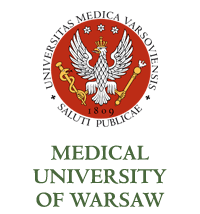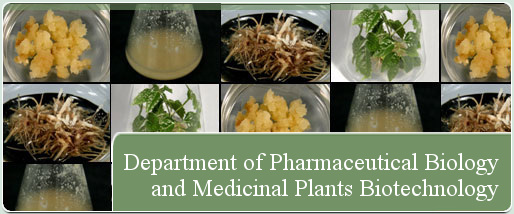You are here
Scientific activity
Scientific research conducted in the Department concerns plant biotechnology of medicinal plant species, foreign to the Polish flora and plant species native to Polish flora and subjected to strict species protection. Plant micropropagation is performed through direct regeneration from existing meristems and indirectly through callus tissue (organogenesis, somatic embryogenesis). Currently, the research work of the Department focuses on the intensification of the production of secondary metabolites - compounds showing multidirectional biological activity: anti-cancer, antimicrobial, adaptogenic, and antineurodegenerative - in cultures of cells, tissues and plant organs in vitro, several species of medicinal plants. For this purpose, various biotechnology methods are used, e.g. two-stage cultures (Lithospermum canescens (Michx.) Lehm - Plant Cell Tiss Org. 2012; 108: 213-219); selection of high-yielding cell lines (Arnebia euchroma (Royle) Johnst. - In Vitro Cell Dev Biol - Plant. 2012; 48: 555-564); elicitation and / or supplementation with precursors and genetic transformation (L. canescens - Plant Cell Rep. 2006; 25: 1052-1058; Taxus x media var. Hicksii - Acta Physiol Plant. 2015; 37: 218. DOI 10.1007 / s11738-015- 1949-x; J Plant Physiol. 2009; 166: 1950-1954; Taxus cuspidata and Taxus x media - Biotechnol. Lett. 2000; 22: 1449-1452; Rhodiola kirilowii (Regel) Regel et Maximowicz - Biotechnol Lett. 2014; 36 (3): 649-656, Acta Biol Cracov series Bot. 2013; 55/2: 126-133); in situ extraction using perfluorocarbons - Taxus x media var. Hicksii - Plant Cell Tiss Org Cult. 2015; 120: 1151-1059; Arnebia euchroma (Appl Biochem Biotechnol. 2014; 172 (5): 2618-2627). In addition, the research topic of the Department has been expanded to apply molecular biology techniques, including study of the expression of genes involved in biosynthesis pathways of secondary metabolites (Biotechnol Progress. 2010; 26 (4): 1145-1153).

